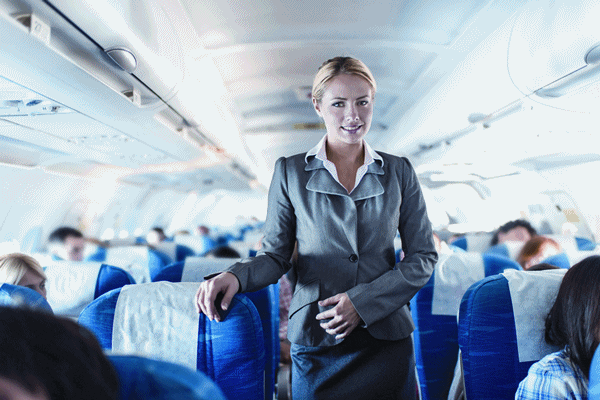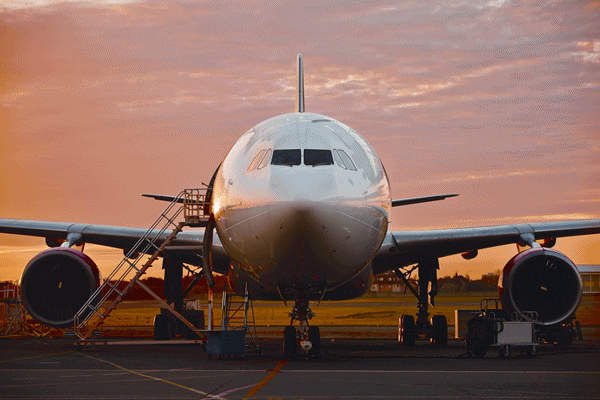Ancillary services and the travel agent: The opportunities ahead
This paper by Amadeus, aimed at traditional travel agencies, highlights the business benefits that come from the seamless booking of additional flight-related services (also called ‘ancillary services’)
Many airlines have adapted their business model to factor in ancillary services, and travellers’ expectations have changed as a result. Agents need to be specialist retailers, with detailed knowledge of the market and an insight into individual travellers. They also need access to the widest range of content at a competitive price.
The emergence of ancillary services
Since the start of the current global economic slowdown in 2008, airline profitability has been impacted by a number of factors. Traditional premium traffic has fallen by around 10 per cent while economy is up seven per cent. Overall, 4.2 per cent more people will fly in 2012 than in 2011, with economy traffic taking an increasingly high proportion.
Airlines are keeping a tight control on costs at the same time as trying to maximise their revenue per passenger. In the US, average fares on domestic and international flights have started to recover over the past few years, but are still 16 per cent lower – in real terms – than 1995. Yields remain under pressure however. IATA says that some airlines are increasing volumes at the expense of yields.
Ancillary revenues are a key part of many airlines’ business models. In established markets such as North America and Europe, some carriers such as Spirit, Allegiance and Ryanair are seeing ancillary revenues account for more than 20 per cent of total revenues. The trend has spread to Asia Pacific, with Air Asia and Tiger Airways also seeing around one fifth of total revenues from ancillary services. The trend is set to continue. Looking ahead, 83 per cent of airlines plan to sell ancillary services direct to the consumer via mobile. PhoCusWright found that 23 per cent of leisure travellers and one-third of business travellers access the web via their phones every day. The net result is that ancillary services are here to stay. Passengers have embraced this change, and are willing to pay for services which add value to their experience. For example, seat upgrades are popular with passengers in a number of key markets. Passengers are also interested in using new technologies to book their exit seat.
Agents need to find a way not only to book these services – and more – for their clients but also to make sure it is worth their while to do so.
What exactly are we talking about?
IdeaWorks, the foremost consultancy focused on airline ancillary revenues, first defined ancillary revenue in 2008. Since then, the traditional airline industry has changed its attitude towards ancillary revenues, at the same time as traveller expectations have shifted. In 2011, IdeaWorks updated the definition, which is accepted as the global standard by airlines. Ancillary revenue is defined as revenue beyond the sale of tickets that is generated by direct sales to passengers, or indirectly as a part of the travel experience.
Within this, four different types of ancillary revenues are identified as:
“À la carte” features – amenities consumers can add to their air travel experience, such as:
- on-board sales of food and beverages;
- checking of baggage and excess baggage;
- assigned seats or better seats such as exit rows;
- priority check-in and screening;
- early boarding benefits;
- on-board entertainment systems;
- wireless internet access.
Commission-based products: Ancillary revenue activities also include the commissions earned by airlines on the sale of hotel accommodations, car rentals and travel insurance. The commission-based category primarily involves the airline’s website, but it can include the sale of duty-free and consumer products on-board aircraft.
Frequent flier programmes – the frequent flier category largely consists of the sale of miles or points to programme partners such as hotel chains and car rental companies, co-branded credit cards, online malls, retailers, and communication services. Sales of miles or points made directly to programme members also qualify.
Advertising sold by the airline – this is a newer category and includes any advertising initiative linked to passenger travel.
The following are typical activities:
- revenue generated from the in-flight magazine;
- advertising messages sold in or on the aircraft, loading bridges, gate areas, and airport lounges;
- fee-based placement of consumer products and samples.
IdeaWorks research found, ancillary services generated revenue activity of €15.11 billion (US$ 21.46 billion) in 2010; 38 per cent more than in 2009 and 96 per cent more than 2008. Most of the revenues fall under the “à la carte definition” above, and this is the area where agents can play an essential role in personalising their customers’ service.
What airlines and travellers are currently thinking
Spirit Airlines in the US is one of the industry’s most successful ancillary retailers. In 2010 it started charging for hand luggage in the cabin. Some people saw this as a step too far, but it did not deter passengers. The airline flew 24.5 per cent more people in the 12-month period following the introduction of the carry-on fee and saw a US$ 50m annual increase in revenue as a result. Spirit said that customers embrace unbundling in exchange for low air fares and more choice. As noted, customers are learning to change their behaviour as a result – fees imposed by airlines for checking in at the desk can be avoided by passengers who check in online. Airlines say that this also keeps their airports costs down, which in turn helps to keep fares low. IdeaWorks also points out that baggage service has improved by around 50 per cent since baggage fees became standard practice for US airlines in 2007/8. Ideaworks argues that when passengers are paying they expect a better service, which airlines deliver in return for the revenues.

In-flight catering is another example of how airlines are taking advantage of customers’ changing expectations. Air Berlin now offers a comprehensive range of in-flight meals to passengers and is using it as a way to differentiate itself in the competitive European market.
Over the years, in-flight catering has changed from a cost to the airlines to a revenue stream. In the early days of aviation, food was part of the ticket whether the customer wanted it or not. Airlines then focused on selling only snacks on board before finding a way to generate revenues by providing an in-flight option which passengers are willing to pay for.
The Air Berlin example shows how ancillary services are evolving, and how the approach varies between airline and markets. The industry appears to have won the consumer argument with clear communication, choice and most importantly, keeping the fares low with the possibility of personalisation.
Why ancillary services should be of interest to the travel agency
The global economic climate, growth of online travel agencies and changing booking patterns have put traditional travel agencies under financial pressure. Travel agents’ skill lies in creating trips for business and/or holidays that meet the travellers’ requirements. Selling ancillary services sits easily with both, tailoring the experience and adding value. This means that by actively selling ancillary services you would:
1. Reinforce customer service: Booking ancillary services is key to high standards of customer service. If travellers are offered in-flight entertainment or additional leg room when booking, the agent generates more customer satisfaction by providing a personalised service. A direct result of providing great customer service is customer loyalty and retention. McKinsey & Co research found that a loyal customer spends more, is less price-sensitive and will promote your business to others.
2. Maintain the competitive edge: In a fiercely competitive environment, travel agencies already offering customers ancillary bookings can gain the edge by increasing the range of services they provide. Importantly, agents offering ancillary services can compete effectively with airlines’ own websites and online channels.
Agents should be aware that if you don’t book “à la carte” services, the customer could go the airline’s site and do it themselves. You could lose more than just goodwill if they end up booking their extra requirements through the airline’s own website, as they could also be booking their hotel and car hire. Aside from that, chances are next time the customer will go direct and is lost to the agent for ever. Ancillary services provision comes into its own on complex itineraries, using multiple carriers, where policies and fees differ. Handling multi-leg trips reinforces the travel agents’ role as travel consultant. Corporate agreements that business travel agencies have with airlines could evolve in the future to include ancillary services. A business travel agency might want to offer customised ‘packages’ for a particular corporation – such as selected seating so that the traveller can get off of the plane quickly, or in-flight WiFi access so that he/ she can continue work whilst travelling. Using ancillary services to differentiate is an option now open to agents. A leisure travel agency might want to offer families a service including options such as sitting together or combined luggage allowances.
3. Be transparent: Customers know what they want and increasingly also know where to get it. Agents must be as informed as their customers, be able to access as much if not more content and then sell the service to the customer. Competing on service is easier than competing on price.
“We’ve taken the route of booking ancillaries directly through the Amadeus GDS because for us service is a must — we need to offer the whole package. I don’t think it’s a good idea to direct passengers to an airline’s website to book ancillaries. If you’re a traveller and you call a travel agency, you expect good customer service,” says Michael Below Trabandt, senior project manager products & projects, Carlson Wagonlit Travel, Denmark.
So what can travel agencies do now?
If you are a travel agent and are not already pro-actively selling ancillary services, you should start doing so in order to reinforce your customer service proposition and provide travellers with the transparency they require from you, the travel expert, to maintain the competitive edge. In markets such as the US and Europe, where ancillaries are established, there is still significant growth to come. Atmosphere Research Group found that in the UK, US, Brazilian and Chinese markets around half of passengers are paying for checked in bags, indicating a significant growth potential for airlines and agents. Accessing, booking and changing the airlines’ ancillary services directly from your front-office system will allow you to also become much more efficient, allowing you to save time and therefore costs.
Amadeus recognizes the need for travel agents to be able to access this content in a streamlined way. With comparable content to that of an airline’s own website, Amadeus allows you to offer a competitive and comprehensive range of optional and additional “à la carte” services to your customers, processed in a uniform way, whatever the airline. A unique dynamic catalogue aggregated into your single point-of-sale provides a customised and professional sales tool, allowing you to retain your customers by offering a onestop travel solution, reinforcing your role as travel consultant.

Amadeus is leading the way in offering you the first intuitive catalogue of services integrated into a professional selling interface, allowing you to easily browse and sell airlines’ ancillary services as value-added items on top of the base fare. You can also reduce time which is wasted unnecessarily when navigating through different airline websites, each with its own procedures. Ancillary services offered via Amadeus are seamlessly integrated into existing pricing and booking flows, with all relevant data fed to your mid- and back-office systems via the Amadeus Interface Record.
In summary
The unbundling of flight-related services is not going away. By offering customers ancillary services now, travel agencies demonstrate their value by fulfilling a consultancy role, helping customers break down the total cost of travel and providing a complete service.
Maintaining customer satisfaction is vital. The added value brought about by offering ancillary services at the booking phase reinforces customer service, which in turn boosts loyalty and positively enhances reputation. Ancillary services are now integrated seamlessly with agencies’ existing interface thanks to the Amadeus Selling Platform. Agents do not have to leave the booking flow to go to an airline’s website, then return to the booking. And by saving time, agents can focus attention on other tasks.
Content availability through Amadeus Selling Platform will grow richer as more airlines add their ancillaries to the Amadeus Global Distribution System (GDS). And more content means a better service.

